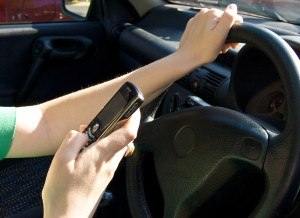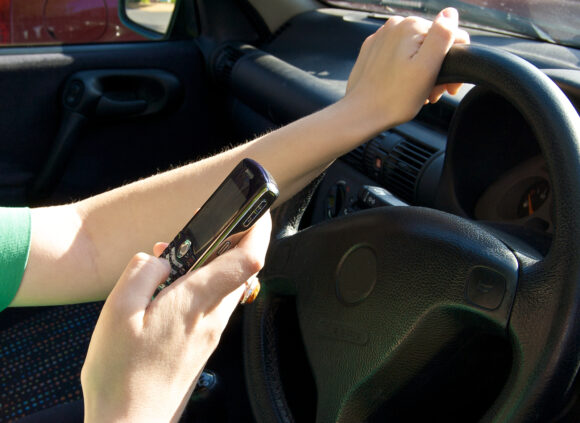A recent survey commissioned by USAA shows that service members who have been deployed text significantly less while driving than those who never have been deployed (39 percent to 53 percent). Service members within six months of their return from deployment were even less likely (34 percent) to text while driving.
“We believe the data suggests there’s more to learn from service members who’ve been deployed about why their behaviors changed,” said Joel Camarano, assistant vice president for the Property and Casualty Insurance Group’s Auto Innovation and Development Team at USAA. “Limited access, an absence of driving opportunities, specialized training or other reasons may all play a role.”
Overall, the survey found that 43 percent of those active-duty military members who participated in the survey text while driving, a rate similar to that reported by teen drivers and other civilian commuters in surveys commissioned by AT&T in 2012 and 2013. Further, one-third of those surveyed who believe texting while driving is dangerous still engage in the behavior.
 The survey indicates that rank, gender and age make a difference when it comes to texting while driving behaviors among service members. Of those surveyed, officers are more likely than enlisted to read or send text messages while driving (51 percent to 41 percent) and, when compared to the AT&T surveys, military officers text more while driving than civilian commuters or teen drivers. More than half of female service members (53 percent) who responded admit to texting while driving compared to 40 percent of their male counterparts. Younger service members (ages 21-24) are most likely to text while driving.
The survey indicates that rank, gender and age make a difference when it comes to texting while driving behaviors among service members. Of those surveyed, officers are more likely than enlisted to read or send text messages while driving (51 percent to 41 percent) and, when compared to the AT&T surveys, military officers text more while driving than civilian commuters or teen drivers. More than half of female service members (53 percent) who responded admit to texting while driving compared to 40 percent of their male counterparts. Younger service members (ages 21-24) are most likely to text while driving.
“USAA is committed to the safety of our service members and their families,” said retired Army Maj. Gen. Kevin Bergner, president of the USAA Property and Casualty Insurance Group. “Through awareness efforts and collaboration with various military branches, we will work to provide information and develop solutions geared toward keeping them safer behind the wheel.”
USAA has supported AT&T’s It Can Wait campaign against texting while driving for the past year and will continue in 2014. USAA launched an educational website – itcanwait.usaa.com – in 2013 where employees, members and the military community can pledge to never text while driving. USAA and AT&T also launched a national tour of military installations and events, where participants used interactive simulators that demonstrated how texting while driving impairs people’s ability behind the wheel and increases their risk of a collision.
USAA commissioned the survey of U.S.-based active-duty military members to gain insight into the military community’s attitudes and behaviors related to distracted driving. Military members representing all five branches of service in nine major military markets were surveyed. The military services were not involved in commissioning this survey, but the results of the survey have been shared with the branches’ military safety centers.
Source: USAA
Was this article valuable?
Here are more articles you may enjoy.


 Credit Suisse Nazi Probe Reveals Fresh SS Ties, Senator Says
Credit Suisse Nazi Probe Reveals Fresh SS Ties, Senator Says  Uber Jury Awards $8.5 Million Damages in Sexual Assault Case
Uber Jury Awards $8.5 Million Damages in Sexual Assault Case  Canceled FEMA Review Council Vote Leaves Flood Insurance Reforms in Limbo
Canceled FEMA Review Council Vote Leaves Flood Insurance Reforms in Limbo  Founder of Auto Parts Maker Charged With Fraud That Wiped Out Billions
Founder of Auto Parts Maker Charged With Fraud That Wiped Out Billions 